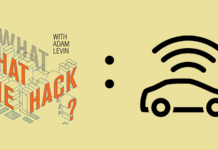The most remarkable aspect of the revelation Facebook allowed millions of people to unwittingly, and unwillingly, help the Trump victory machine on social media may be that people are actually surprised by it.
The social networking giant knew for two years that a third party had ill-gotten, harvested data associated with more than 50 million U.S. voters—almost all of it without their knowledge or consent.
The story came by way of a whistleblower. Christopher Wylie claims that he built former White House insider Steve Bannon’s psychological warfare tool using a treasure trove of information collected by Facebook and sold to Cambridge Analytica.
This is not a cybersecurity story. It’s about privacy. That anyone could be tempted to think Mark “Privacy Is Dead” Zuckerberg might give a fig about privacy is probably the genesis of what happened here. And let’s be clear about what that is: A complete violation of consumer trust.
Getting Clear
I’ve heard too many people use the term “hack” in describing what happened. That has to stop.
The private information situation that was revealed here was not a hack, but rather an unintended (but totally foreseeable) consequence of social networking.
On the surface, Facebook offers community, but it’s only there for the purpose of market research. Picture if you will the human-power plant that runs the world in the film “The Matrix.” The billions are necessary, but as fuel.
Facebook is first and foremost a multi-billion-dollar advertising platform designed to target consumers for various marketing propositions. It is crucial to bear in mind that unless something is being broadcast, it’s probably being narrowcast based on information that you’ve provided.
That said, as we learned with this story, you don’t actually have to have bad cyber- or social networking habits to get “got”. The information that Facebook originally sold pertained to around 270,000 users. Those people actually opted in. The number of people affected ballooned into the tens of millions because Facebook groups friends, and sells that fact of those friendships. Affinity predicts behavior for marketers. Even people who are not on social media—but mentioned on it by friends and family—have been tracked by the social media giant.
This problem de jour (yes, it will happen again) depends on everyone flinging their data out into the ether, in one way or another, and willfully disregarding the fact that we live in a private sector surveillance environment. It no longer even requires a wanton disregard for one’s own privacy, since the simple act of “friending” someone provides information to marketers.
It’s an old saw by now that whenever something digital is offered to the public free of charge, the public is the product.
If you’re concerned about your credit, you can check your three credit reports for free once a year. To track your credit more regularly, Credit.com’s free Credit Report Cardis an easy-to-understand breakdown of your credit report information that uses letter grades—plus you get two free credit scores updated each month.
You can also carry on the conversation on our social media platforms. Like and follow us on Facebook and leave us a tweet on Twitter.










